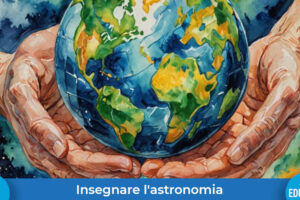Aggiornato il 28 Novembre 2024
Can the lyrics of a song be literature? When I was in middle school (last century), the words of La Guerra di Piero by the Italian songwriter Fabrizio De Andrè (Stefano Sandrelli recently spoke about him with ChatGPT) with amazement I saw them appear in my subsidiary, side by side with those of far more renowned poets.
At the time, I still had a sense of culture as (mainly) dusty and ancient stuff, so it seemed to me funny that a person related to the living world of song (a world that constantly engaged my emotions and my feelings, as it still does), could earn a place there. The question has followed me ever since: was that text okay in the subsidiary? Was it the right place? I won’t even try to answer: I know the question would still haunt me from time to time.

While avoiding the big questions, I would say that it is nice to deal here – as well as with words that find their primary collocation in books – also with words which were written, first of all, in order to be sung: taking refuge in ancient separations and obsolete divisions appears, moreover, increasingly out of time. So, let us leave room for words in music. Of course, it is even better if these words contain a reference to astronomy, its space, its rhythm.
That’s it, the rhythm. It is clear to everyone that everything is rhythm, from heartbeats to the RR Lyrae light effects We live inside an irresistibly rhythmic universe. Of course, this is well known, but we no longer take it into account. We simply do not want to listen to this melody. We have gradually freed ourselves from the rhythms of the Earth, of the Seasons, of the Cosmos.
Perhaps at first this seemed a very good idea, a sort of guarantee of freedom, a progressive liberation from the relentless cycles to which our ancestors were subject. Therefore we went on confidently, separating ourselves – layer after layer – from the periodicities of Nature (day and night, Summer and Winter…), until we found ourselves trapped into a synthetic life, with its completely artificial temporal scans, which are literally out of this world, rhythmically poor and – above all – out of sync with respect to any natural cycle: as such, they make us strain and fatigue us.
The point is that this process of illusory escape is alienating, because we are in the world, we are made of stars, kneaded with matter from the Universe. Subject to its pulse, its beats, from the very first moments of life, or even earlier than that: the cycle of female fertility is in enigmatic correspondence with the revolution of the Moon around our planet: they have the same rhythmic sequence.
Back to the songs, that is why I appreciate the musician Peter Gabriel as he writes in the notes accompanying the release of his song Panopticom, the first musical piece of the album i/o, soon to be published.
The phases of the moon will actually give the rhythm to the releases of the songs of Peter Gabriel’s long-awaited new album. Together with Genesis, Gabriel wrote a nice piece of progressive rock history, then pursued a solo career, featuring a strong expressive originality and skilful sound contaminations. His African period is particularly relevant, if only because he gave us sparkling jewels, such as the album Peter Gabriel IV: an album from which we all learned something, as I read in a (knowledgeable) review.
Back to the present, now: for this new album, a new song is released every full moon. The project kicks off with the song Panopticom, which was unveiled at the first full moon of the year, January 6th.
The second step ““ which is by now predictable in the timeline ““ is the release of the song The Court, on February 5th (the next full moon, of course). Each song release is accompanied by a specific artwork, as well in different mixes (this one is available as a Dark-Side Mix, Bright Side Mix and Atmos In-Side Mix).
Playing for Time is the third piece of this artistic (and not only musical) mosaic in progress, and it goes without saying that it came out ““ at least in its first flavor”“ on March, 7. On April, 6 we discovered i/o, the song which gives the title to the whole project. On May, 5 Four Kinds of Horses was released. We cannot go at the time I am writing this piece. By now, however, you know the rhythm. This time, it is not related to the fibrillation of the record market. Rather, it is deeply connected to the elegant dynamics of the cosmos.
When I go out with Poncho in the evening, I happen to look at the Moon (while he is more likely to sniff the ground, but I don’t judge him). Once, my only thought was: how the hell did they get up there in the Sixties? Nowadays (next to this thought, which still claims a non-negotiable mental space) a new one has arrived – in correspondence with the full moon – well, another song by Peter Gabriel is coming out!
For the followers of one of the greatest contemporary musical geniuses (I really cannot think of a less enthusiastic definition), yet another reason for looking forward to the days when the Moon is most present – almost invasive – in our sky. In my opinion, this is a device which effectively connects two important affective universes, i.e. music and astronomy. For everyone else, this is a kind invitation to open the heart to the rhythms of the cosmos, which have always ruled the life of every living creature: people, animals, plants. This is more suggestive, mythical and richly symbolic than a arid and hasty lifestyle dominated by 24/7 efficiency, by the neon divinity (as Simon & Garfunkel prophetically sang in the Sixties) that we ourselves created.
Returning to the rhythm of the Earth, the Moon, the cosmos, is a peaceful uprising against a system strongly dominated by economic factors, which would make us slaves of consumption (you may have noticed how shopping centers are deliberately isolated from the geographical context ““ they are closed universes, you cannot be distracted by looking at the Moon, the clouds, the mountains: you just have to buy). A possible start of a journey to freedom could be based precisely on returning to feel the music of the cosmos, its specific rhythms. Maybe we could even play with it, just like Peter does. A less fatuous game than it might appear at first sight, since we all feel the need to reconnect with Nature, even though we usually hide it under the carpet.
Indeed, deliberate attention to the rhythms of the cosmos is not a neutral affair, a sterile activity. It cannot be, because it is a clear signal sent to the stars, an evident willingness to agree, a precious predisposition to common resonance.
Everything we see in the cosmos interests us because it also carries with it a cultural, political and social meaning: on the other hand, every civilization has developed its own model of the universe, which tells us much more about how people on Earth reason than about the phenomena taking place in heaven. Cosmology is basically a science of man, the Cosmos always says a lot about us. Come to think about it, it could not be otherwise. After all, Peter agrees. Even Poncho (in his own way) is certainly on the same frequency.
English translation from the original Italian article by Giuliana Giobbi.



Add Comment